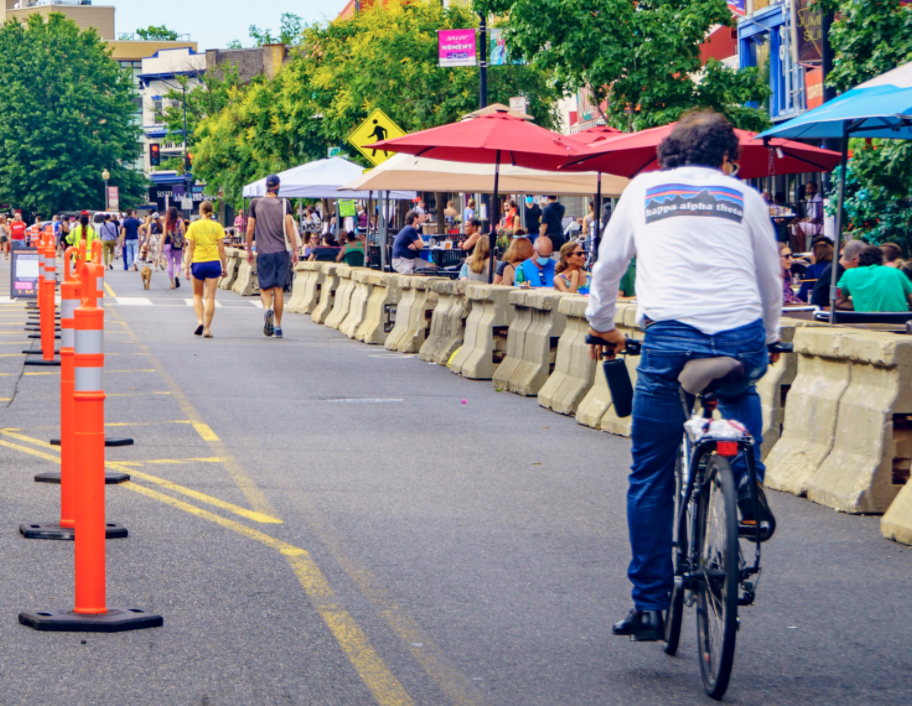- Cities all over the country closed streets to cars and opened them up to pedestrians during the COVID-19 pandemic, and now they're fighting over whether to make those changes permanent. (Washington Post)
- From a too-small New York City tunnel to safety issues in Boston and Charlotte to traffic-choked Southern cities that rejected transit — and outrageous costs to fix it all — the U.S. transportation system is a dystopian hellscape. (Vice)
- Good transit service is wasted without high-density zoning to match. (Commercial Observer)
- More proof that induced demand is a real thing. (Planetizen)
- A new mapping tool can help urban planners identify sidewalk gaps. (MIT News)
- Used EV batteries can find new life hooked up to a solar power grid. (Reasons to Be Cheerful)
- Chicago transit agencies are asking Illinois legislators for help with a looming $730 million budget deficit. (Daily Herald)
- Boston's fare-free transit pilot program is saving low-income riders significant money and making commutes easier. (WGBH)
- Philadelphia is raising parking fines to $300 because drivers keep parking anywhere they like — even on sidewalks (Inquirer). And Market Street is getting a red bus-only lane (ABC 10).
- Chicago aldermen passed a Complete Streets ordinance, instituted automated traffic enforcement and introduced a bill for the city to take over sidewalk snow shoveling. (Streetsblog Chicago)
- Seattle's Sound Transit needs more decisiveness and less micromanaging, according to an advisory group. (The Urbanist)
- An auditor's report found problems with the management of the Southwest light rail line in Minneapolis. (Minnesota Public Radio)
- All 42 Charlotte train cars need repairs after a derailment revealed problems with their axle bearings. (Axios)
- Lyft is dropping Motivate as the maintenance contractor for Portland's Biketown bike-share system. (Bike Portland)
- Tampa is increasing streetcar frequency to once every 12 minutes. (Creative Loafing)
- Salem, Oregon is looking to restore streetcar service that ended in the 1920s. (Reporter)
- Marketers say it grabs attention, but research shows consumers find it cringey when companies like Lyft intentionally misspell their names. (ZME Science)
Streetsblog
Friday’s Headlines Keep the Change

An Open Streets event in Washington, DC. Source: Ted Eytan via Creative Commons.
Stay in touch
Sign up for our free newsletter
More from Streetsblog USA
Americans Demand Congress Fund Active Transportation In Next Infrastructure Bill — And Not Just The Bike/Walk Advocates
A "back to basics" surface transportation bill — as Republicans are seeking — would be devastating for road safety and small businesses.
Friday’s Headlines Take a Lot to Laugh, Take a Train to Cry
I ride on a mail train, baby. Can't buy a thrill.
Talking Headways Podcast: The Future of Transit
Yonah Freemark talks with Jeff Wood about the state of the trains across the world.
Are Roundabouts Just For Rich People?
And if not, how do we get more of them in the low-income neighborhoods that need life-saving infrastructure the most?
Thursday’s Headlines Need Alternatives
Economics 101: Competition brings down costs.
How Recreational Cycling Can Lead to Safe Streets For All
These cities are leveraging joy to fight for connected communities.





